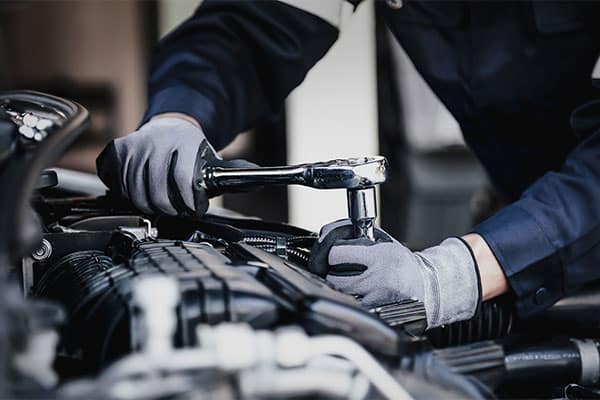All Categories
Featured

Your automobile's engine is the heart of your vehicle, and maintaining it in leading problem is necessary for ideal efficiency and longevity. Normal engine tune-ups are a terrific means to maintain your automobile's health, enhance gas efficiency, and avoid expensive repair services down the roadway. Whether you're a car enthusiast or someone that simply desires to keep their car running efficiently, these engine tune-up pointers will assist you obtain one of the most out of your auto.
- Replace Spark Plugs. Ignition system play a critical function in starting your engine and making sure smooth combustion. Gradually, ignition system can become filthy or worn, resulting in misfires, lowered gas efficiency, and harsh idling.
During an engine tune-up, evaluate and change your ignition system if necessary. A lot of automobiles require brand-new ignition system every 30,000 to 100,000 miles, relying on the type. On a regular basis replacing spark plugs makes sure appropriate ignition and ideal engine efficiency.
- Examine and Tidy the Air Filter. The air filter prevents dirt, dirt, and debris from entering your engine. A clogged up or dirty air filter limits air flow, causing your engine to function tougher and shed more fuel.
Examine your air filter throughout a tune-up and change it if it's filthy. In dusty atmospheres or areas with hefty air pollution, you might need to alter the air filter more regularly. A tidy air filter can boost gas performance and prolong the life of your engine.
- Check and Change Belts and Hose Pipes. Belts and tubes are essential for various engine functions, such as powering the alternator, water pump, and a/c system. Over time, these parts can crack, fray, or wear, potentially leading to break downs.
Throughout a tune-up, check belts and pipes for indicators of wear and change them if required. Changing these parts proactively can save you from costly repair work and stop unexpected failures.
- Clean the Gas System. Your fuel system, consisting of the fuel injectors and gas lines, can collect dirt and carbon down payments gradually, lowering engine efficiency. Cleaning the fuel system during a tune-up helps enhance performance and fuel economy.
You can make use of a gas system cleaner or have an expert mechanic carry out an extra detailed cleaning. This action is specifically vital for older vehicles or automobiles that frequently drive in stop-and-go website traffic.
- Examine the Battery and Charging System. A healthy and balanced battery is necessary for starting your engine and powering electrical elements. During a tune-up, evaluate the battery terminals for rust and ensure the links are tight.
Inspect the battery's voltage and replace it if it shows indicators of weak point. Additionally, have the generator and charging system checked to guarantee your battery stays billed during operation.
- Adjustment the Engine Oil and Oil Filter. Oil changes are a basic part of engine upkeep. Engine oil lubricates moving components, minimizes rubbing, and aids control engine temperature. Gradually, oil becomes infected and sheds its efficiency.
Throughout a tune-up, replace the engine oil and oil filter to maintain your engine running smoothly. Follow your automobile's supplier referrals for oil type and change periods.
- Evaluate the Cooling System. The cooling system avoids your engine from overheating. With time, coolant can deteriorate or come to be contaminated, reducing its performance.
Examine the coolant degree and condition during a tune-up, and flush and replace it if needed. Inspect the radiator, water pump, and hoses for leaks or damages. A properly maintained cooling system assists your engine run at the ideal temperature level and prevents overheating.
- Evaluate the Ignition System. A defective ignition system can cause starting issues and lowered engine performance. During a tune-up, examine the ignition coils, supplier cap, and blades (if suitable) Replace any type of components that show signs of wear or damage to ensure smooth and trustworthy engine operation.
- Listen for Unusual Noises. During a tune-up, seize the day to listen for any kind of uncommon engine sounds, such as knocking, ticking, or hissing. These noises can indicate underlying concerns, such as valve problems, loose components, or exhaust leakages. Dealing with these issues early can stop extra substantial damages.
- Use High Quality Parts and Fluids. When performing an engine tune-up, constantly utilize top notch components and liquids that satisfy your vehicle maker's specifications. Cheap or inaccurate parts can jeopardize your engine's performance and reliability.
Conclusion: A Well-Tuned Engine is Key to Longevity. Routine engine tune-ups are essential for keeping your car's efficiency, performance, and integrity. By changing worn parts, cleansing essential systems, and dealing with potential issues, you can keep your engine running smoothly for years to find. Whether you're doing it yourself or relying upon a trusted technician, purchasing tune-ups is a clever method to secure your lorry and enjoy a more secure, smoother ride.
Latest Posts
Find Premier Auto Repair Care at Montclare Auto Repair – Expert Care for Your Vehicle
Learn How to Cut Costs on Car Maintenance with Montclare Auto Repair’s Exclusive Deals
Improve Your Building with Expenses Door Equipment
More
Latest Posts
Find Premier Auto Repair Care at Montclare Auto Repair – Expert Care for Your Vehicle
Learn How to Cut Costs on Car Maintenance with Montclare Auto Repair’s Exclusive Deals
Improve Your Building with Expenses Door Equipment
